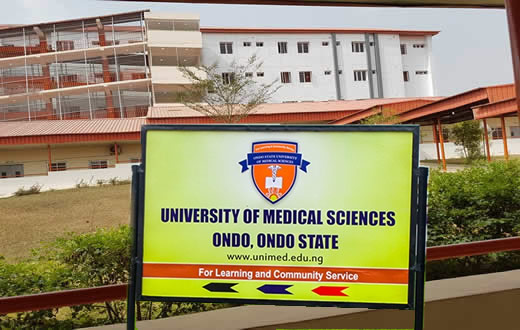Healthcare waste management in Nigeria is facing significant challenges, primarily due to a lack of knowledge among healthcare workers, incomplete data collection, and limited public awareness regarding the potential hazards associated with this type of waste. Experts convened at the University of Medical Sciences (UNIMED) in Ondo State to address these critical issues, highlighting the urgent need for comprehensive legal frameworks, robust policies, and effective implementation strategies across all levels of healthcare. The meeting, themed “Legal, policy and implementation issues in healthcare waste management,” aimed to devise actionable solutions and promote best practices in managing healthcare waste, emphasizing the importance of collaboration between academia, healthcare professionals, and governmental bodies.
A key concern raised during the meeting was the inadequate understanding of proper waste management procedures among healthcare workers. This knowledge gap poses a significant risk, as improper handling of healthcare waste can lead to the spread of infectious diseases, environmental contamination, and injuries to both healthcare personnel and the public. Experts stressed the necessity of providing comprehensive training and education to healthcare workers on appropriate waste segregation, handling, and disposal techniques. This training should encompass all aspects of healthcare waste management, from the point of generation to final disposal, and incorporate the latest guidelines and best practices.
The absence of comprehensive data on healthcare waste generation and composition further complicates effective management efforts. Without accurate data, it becomes difficult to assess the scale of the problem, develop targeted interventions, and monitor the effectiveness of implemented strategies. Experts recommended establishing a robust data collection system at both national and state levels, encompassing all healthcare facilities, to gather detailed information on the types and quantities of waste generated. This data will be instrumental in developing evidence-based policies, allocating resources effectively, and evaluating the impact of interventions.
Public awareness regarding the dangers of healthcare waste remains alarmingly low. Many individuals are unaware of the potential health risks associated with improper disposal of medical waste, such as needles, sharps, and contaminated materials. This lack of awareness can lead to unsafe practices, such as scavenging and open burning of healthcare waste, which can have severe health and environmental consequences. A comprehensive public awareness campaign is crucial to educate the populace on the potential dangers of healthcare waste and promote responsible disposal practices. This campaign should utilize diverse media platforms, including radio, television, social media, and community outreach programs, to reach a wide audience.
Experts at the meeting strongly advocated for the enactment of robust policies, regulations, and statutes at the state level to ensure consistent and effective healthcare waste management practices across the country. These legal frameworks should clearly define roles and responsibilities, establish standards for waste handling and disposal, and prescribe penalties for non-compliance. Harmonized regulations across all states will prevent discrepancies and facilitate inter-state collaboration in managing healthcare waste. Furthermore, the experts urged both federal and state governments to allocate specific budgetary provisions for healthcare waste management, recognizing that adequate funding is essential for implementing effective programs and procuring necessary equipment and infrastructure.
Expanding the environmental health workforce is another crucial recommendation put forth by the experts. A larger, well-trained environmental health workforce is essential to oversee the implementation of healthcare waste management policies, conduct regular inspections of healthcare facilities, and provide technical assistance to healthcare providers. This workforce should include environmental health officers, waste management specialists, and trained personnel at the healthcare facility level to ensure proper waste segregation, handling, and disposal. Investing in the environmental health workforce will strengthen the capacity of the healthcare system to manage waste effectively and minimize the associated risks.
The meeting also underscored the importance of proactive government involvement in healthcare waste management. Experts called for increased government oversight, regular monitoring and evaluation of waste management practices, and the establishment of clear accountability mechanisms. Collaboration between government agencies, healthcare facilities, and research institutions is vital to develop comprehensive strategies and ensure their successful implementation. Regular audits of healthcare facilities should be conducted to assess compliance with regulations and identify areas for improvement. By taking a proactive stance, the government can play a pivotal role in ensuring the safe and effective management of healthcare waste, protecting public health and the environment. The University of Medical Sciences’ initiative in developing healthcare waste management guidelines for its campuses serves as a model that can be adopted at the national level, demonstrating the important role academic institutions can play in addressing this critical issue.


